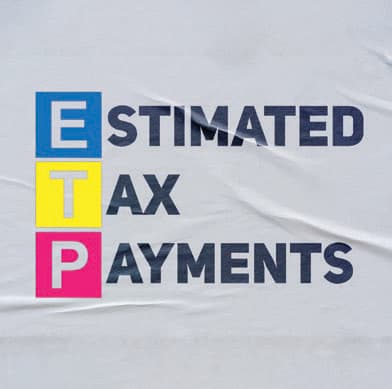The advantages of using an LLC for your small business

If you operate your small business as a sole proprietorship, you may have thought about forming a limited liability company (LLC) to protect your assets. Or maybe you’re launching a new business and want to know the options for setting it up. Here are the basics of operating as an LLC and why it might be a good choice for your business.
An LLC is a bit of a hybrid entity, because it can be structured to resemble a corporation for owner liability purposes and a partnership for federal tax purposes. This duality may provide owners with the best of both worlds.
Protect your personal assets
Like the shareholders of a corporation, the owners of an LLC (called members rather than shareholders or partners) generally aren’t liable for the debts of the business except to the extent of their investment. Thus, the owners can operate the business with the security of knowing that their personal assets are generally protected from the entity’s creditors.
This protection is much greater than that afforded by partnerships. In a partnership, the general partners are personally liable for the debts of the business. Even limited partners, if they actively participate in managing their businesses, can have personal liability.
Consider tax issues
The owners of an LLC can elect under the “check-the-box” rules to have the entity treated as a partnership for federal tax purposes. This can provide a number of benefits to owners. For example, partnership earnings aren’t subject to an entity-level tax. Instead, they flow through to the owners in proportion to the owners’ respective interests in profits, are reported on the owners’ individual returns and are taxed only once.
To the extent the income passed through to you is qualified business income, you’ll be eligible to take the Code Section 199A qualified business income deduction, subject to various limitations. (However, keep in mind that this deduction is temporary. It’s available through 2025, unless Congress acts to extend it.)
In addition, since you’re actively managing the business, you can deduct on your individual tax return your ratable shares of any losses the business generates. This, in effect, allows you to shelter other income that you (and your spouse, if you’re married) may have.
An LLC that’s taxable as a partnership can provide special allocations of tax benefits to specific partners. This can be a notable reason for using an LLC over an S corporation (a form of business that provides tax treatment that’s similar to a partnership). Another reason for using an LLC rather than an S corp is that LLCs aren’t subject to the restrictions the federal tax code imposes on S corps regarding the number of owners and the types of ownership interests that may be issued.
Consider all angles
In conclusion, an LLC can give you corporate-like protection from creditors while providing the benefits of taxation as a partnership. For these reasons, you may want to consider operating your business as an LLC. Contact us to discuss in more detail how an LLC might be an appropriate choice for you and any other owners.
First-year bonus depreciation and Sec. 179 expensing: Beware of pitfalls

Eligible taxpayers can elect to use bonus depreciation or Section 179 expensing to deduct the full cost of eligible property in the year it’s placed in service. Alternatively, they may spread depreciation deductions over several years or decades, depending on how the asset is classified under the tax code.
For 2023, bonus depreciation was 80%. It drops in 2024 to 60%, in 2025 to 40% and in 2026 to 20%. After that, it will be eliminated, unless Congress acts to extend it. While taking current deductions can significantly lower your company’s taxable income, it isn’t always the smartest move.
Here are two examples when it may be preferable to forgo bonus depreciation or Sec. 179 expensing:
- You’re planning to sell qualified improvement property (QIP). If you have significant building improvements that are eligible for bonus depreciation as QIP, writing it off currently may be a tax trap if you plan to sell the building soon. That’s because your gain on the sale — up to the amount of bonus depreciation or Sec. 179 deductions you’ve claimed — will be treated as “recaptured” depreciation that’s taxable at ordinary-income tax rates, up to 37%. But if you deduct the cost of QIP under regular depreciation rules (generally, over 15 years), any long-term gain attributable to the deductions will be taxable at a top rate of 25% if the building is sold.
- You’re eligible for the qualified business income (QBI) deduction. This deduction allows eligible business owners to deduct up to 20% of their QBI from certain pass-through entities, such as partnerships, limited liability companies or sole proprietorships. The deduction — available through 2025 — can’t exceed 20% of an owner’s taxable income, excluding net capital gains. (Other restrictions apply.)
Claiming bonus depreciation or Sec. 179 deductions reduces your taxable income, which may deprive you of an opportunity to maximize the QBI deduction. And since it’s scheduled to expire in 2025, it makes sense to take advantage of it while you can.
Timing is everything
Keep in mind that only the timing of deductions is affected by the strategy you choose. You’ll still have an opportunity to write off the full cost of eligible assets over a longer time period. Your tax advisors can analyze your company’s overall tax benefit picture and come up with an optimal strategy.
Appraisals aren’t just for businesses anymore
Whether you’re in the process of making a retirement or estate plan, or intend to donate property to charity, you’ll need to know the value of your assets. For many hard-to-value items — such as closely held business interests, real estate, art or collectibles — an appraisal may be necessary.
Retirement and estate planning
To enjoy a comfortable retirement, you’ll need to calculate the income that can support your lifestyle when you’re ready to leave work. This means understanding the value of the assets you own. Once you have this information, you may decide to move your retirement date up — or back.
Knowing the value of your assets allows you to know whether you’re potentially subject to estate or gift taxes. It also allows you to identify strategies for minimizing or eliminating those taxes. In addition, it enables you to distribute your wealth fairly. Without appraisals of hard-to-value assets, it’s nearly impossible to divide your overall property equally among your children.
Appraisals may also be necessary to avoid running afoul of tax basis consistency rules. The rules are intended to prevent heirs from arguing that estate property was undervalued, which would raise their basis for income tax purposes. According to these rules, the income tax basis of inherited property equals the property’s fair market value as finally determined for estate tax purposes. Appraisals can help ensure that your heirs receive the basis they deserve.
Gifts and charitable giving
The IRS has an unlimited amount of time to challenge the value of gifts for gift and estate tax purposes, unless they’re “adequately disclosed,” which generally binds the IRS to a three-year statute of limitations. A qualified professional appraisal with a timely filed gift tax return is the best way to disclose the value of a gift.
Charitable gifts of property valued at more than $5,000 (other than publicly traded securities) must be substantiated with a qualified appraisal by a qualified appraiser. This means that the appraiser meets certain education and experience requirements.
Know what you have
Without appraisals of your hard-to-value assets, it’s difficult to develop a realistic financial plan, treat your heirs fairly and avoid unwelcome tax liabilities. Asset values can fluctuate dramatically over time, so make sure you get updated appraisals periodically.
One reason to file your 2023 tax return early

The IRS will soon announce the opening of the 2023 individual income tax return filing season. Even if you typically don’t file until much closer to the April 15 deadline (or you file for an extension), consider filing earlier this year. Why? A key benefit is that you may be able to protect yourself from tax identity theft.
How is a person’s tax identity stolen?
In a tax identity theft scheme, a thief uses another individual’s personal information to file a fraudulent tax return early in the filing season and claim a bogus refund.
The real taxpayer discovers the fraud when he or she files a return. The taxpayer then hears from the IRS that the return is being rejected because someone has already filed a return with the same Social Security number or tax year. While the taxpayer should ultimately be able to prove that his or her return is the legitimate one, tax identity theft can be difficult to straighten out and can significantly delay a refund.
Filing early may be your best defense: If you file first, it will be the tax return filed by a potential thief that will be rejected — not yours.
Do you need help?
If you have questions or would like an appointment to prepare your return, please contact us. We can help ensure you file an accurate return that takes advantage of all of the breaks available to you.
Tax Calendar
January 16 – Individual taxpayers’ final 2023 estimated tax payment is due.
January 31 – Employers must file 2023 Forms W-2 (“Wage and Tax Statement”) with the Social Security Administration and provide copies to their employees.
- Employers must file (paper or electronic) 2023 Forms 1099-NEC (“Nonemployee Compensation”), reporting nonemployee compensation payments, along with the related Form 1096 (“Annual Summary and Transmittal of U.S. Information Returns”), and provide copies to recipients.
- Most employers must file Form 941 (“Employer’s Quarterly Federal Tax Return”) to report Medicare, Social Security and income taxes withheld in the fourth quarter of 2023. If an employer’s tax liability is less than $2,500, he or she can pay it in full with a timely filed return.
- Employers must file Form 940 (“Employer’s Annual Federal Unemployment (FUTA) Tax Return”) for 2023. If an employer’s undeposited tax is $500 or less, he or she can either pay it with the return or deposit it. If it is more than $500, he or she must deposit it.
- Employers must file Form 943 (“Employer’s Annual Federal Tax Return for Agricultural Employees”) to report Social Security, Medicare and withheld income taxes for 2023. If an employer’s tax liability is less than $2,500, he or she can pay it in full with a timely filed return.
- Employers must file Form 945 (“Annual Return of Withheld Federal Income Tax”) for 2023 to report income tax withheld on all nonpayroll items, including backup withholding and withholding on pensions, annuities, IRAs, etc. If an employer’s tax liability is less than $2,500, he or she can pay it in full with a timely filed return.
February 28 – Employers must file 2023 Form 1099-MISC (“Miscellaneous Income”) reporting certain payments to certain persons, along with the related Form 1096 (“Annual Summary and Transmittal of U.S. Information Returns”) and provide copies to recipients.
March 15 – Calendar-year partnerships and S corporations must file or extend 2023 tax returns. If the return is not extended, this is also the last day for those types of entities to make 2023 contributions to pension and profit-sharing plans.
About Batley CPA
Batley CPA, LLC is a full-service CPA firm providing tax, accounting, payroll and advisory services to businesses and individuals throughout Green Bay and the Fox Cities. Batley CPA regularly provides clients with best practices and strategies to maximize cash flow, profit, reduce taxes, manage costs and risk, and bring meaning to financial and operational data. The company has offices in Appleton, Neenah and Green Bay.


